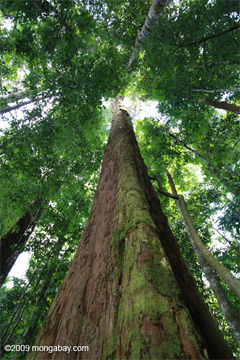 One of my favorite environmental communicators, David Suzuki, gets into the importance of conservation -- of forests and other ecosystems -- in the drive to reduce global CO2 levels:
One of my favorite environmental communicators, David Suzuki, gets into the importance of conservation -- of forests and other ecosystems -- in the drive to reduce global CO2 levels:While much of the debate and action has focused on curbing emissions from burning fossil fuels such as oil, coal, and gas, the destruction of our forests, wetlands, grasslands, and peatlands is responsible for about one quarter of all other emissions into the atmosphere. That’s higher than emissions from cars, trucks, boats, and planes together.
In Canada and throughout the world, forests are being rapidly cleared for agriculture and oil and gas development and are being destructively mined and logged. When forest soils are disturbed and trees are burned or cut down for wood and paper products, much of the carbon stored in their biomass is released back into the atmosphere as heat-trapping carbon dioxide, although some carbon can remain stored in longer-lived forest products, like wood used to make furniture or homes.
Thus the destruction of forests and other ecosystems is not only a driver of extinction of species, such as boreal caribou, but is a driver of global warming as well.
We need to adopt a carbon stewardship approach to how we use our forests and the goods and services we take from them.
For some scientists, carbon stewardship means setting aside at least half of all remaining intact forests as protected areas, particularly carbon-rich forests like old-growth temperate rainforests in B.C. and the boreal in Canada’s north, where wildlife like caribou feed, breed, and roam. Protecting intact forests also promotes ecological resiliency so that species and ecosystems can cope with and adapt to the effects of climate change.
That doesn't mean that the logging companies should be allowed to trash the other 50 percent. Forests that we do manage for wood and paper production should be logged according to the highest standards of ecosystem-based management—without clear-cutting and with adequate protection for wildlife habitat like caribou as well as sensitive areas like wetlands.
We're going to need every tool in the tool box, from the low-hanging fruit of energy and building efficiency, to mass proliferation of clean and stable renewable energy sources, to a revolution in sustainable agriculture, to protection of vital services provided by forests and other ecosystems, from carbon sequestration to fresh water provision.
It is a monumental challenge, the likes of which humanity has never faced before? You bet!
Can we do it?
We must...
Read more>>
...
No comments:
Post a Comment